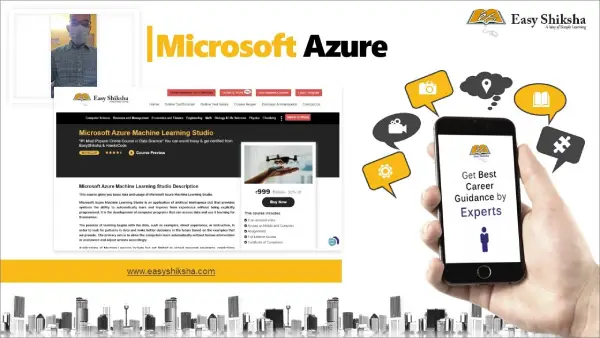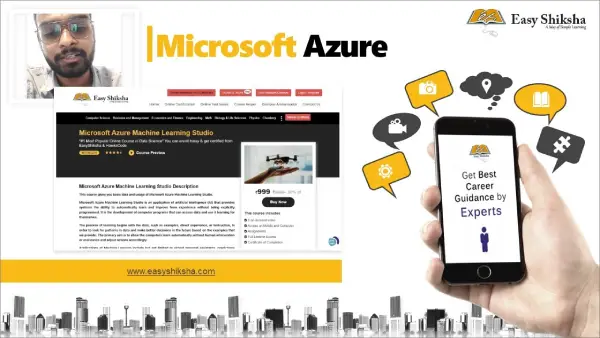1. Project Overview:
Begin with an in-depth exploration of the Block Diagram of your digital thermometer project, setting the foundation for everything that follows.
2. ATMEGA32 Basics:
Dive into the heart of the microcontroller with an introduction to ATMEGA32.
Learn about the essential Pins and Ports involved in your project.
Understand GPIO Registers and their crucial functions in ATMEGA32.
3. Sensor Fundamentals:
Gain a solid understanding of sensor sensitivity.
Get introduced to the LM35 Temperature Sensor and learn how to interpret its datasheet.
4. Analog to Digital Converters (ADC):
Explore the concept of ADCs and their importance in digital projects.
Learn about resolution in ADCs and how it impacts your readings.
Understand ADMUX and ADLAR Registers in ATMEGA32 for precise sensor data conversion.
5. Circuit Simulation with Tinkercad:
Move into hands-on application with circuit simulation on Tinkercad Software using Arduino, making the theory come alive.
6. Microcontroller Programming:
Design and simulate the logic and program for your project using Microchip Studio Software, ensuring your thermometer works as intended.
7. Final Simulation in Proteus:
Bring it all together by simulating the entire project on Proteus Software, confirming the functionality of your design in a virtual environment.
By the end of this course, you will have a well-rounded understanding of how to design, simulate, and implement a digital thermometer project using industry-standard tools and techniques. This course covers a broad range of topics, from microcontroller basics to advanced simulation software, making it ideal for beginners and those looking to deepen their knowledge of embedded systems and biomedical projects.
Who this course is for:
Biomedical Engineers interested in medical device projects.
Electronics and Electrical Engineers seeking hands-on projects.
Instrumentation Engineers working on sensor-based systems.
Robotic Engineers exploring embedded systems and control.
Enthusiasts working on Arduino projects.
Developers focused on ATmega32 projects.
Anyone interested in Microcontroller Projects.




























































M “Javed” Javed
-
01 Feb 2025An excellent hands-on course that taught me how to design a digital thermometer from scratch!
Awais Sultani
-
15 Jan 2025I loved how the course combined hardware and programming to create a working digital thermometer.
Mohammed Imran 78632
-
15 Jan 2025Clear instructions on using Atmega32, Arduino, and LM35 sensor for biomedical projects.
Mahmood Wazir
-
15 Jan 2025Great project-based learning that helped me understand the application of sensors in healthcare.
Tilawat Khan
-
14 Jan 2025Perfect course for anyone interested in biomedical electronics and sensor integration.
Farman ali Ali
-
13 Jan 2025The course made it easy to understand microcontroller programming for real-world applications.
Sabar Ali khan
-
13 Jan 2025I built my own digital thermometer using Arduino and LM35, thanks to this course!
Ahsan ullah Ahsan
-
13 Jan 2025This course gave me valuable skills in biomedical project design and sensor interfacing.
Imad Ali
-
13 Jan 2025An amazing way to learn about temperature measurement systems with practical coding examples.
Jamshad Ali
-
12 Jan 2025Ideal for beginners who want to explore biomedical projects and embedded systems.
Muhammad Zeeshan
-
12 Jan 2025The course/project explains how to interface the LM35 temperature sensor with the Atmega32 microcontroller and Arduino, read analog data, process it, and display accurate temperature readings
Hamad Ali Nizamani
-
12 Jan 2025The step-by-step explanations for using the LM35 sensor with the Atmega32 microcontroller and Arduino made the implementation straightforward. I appreciated the detailed circuit diagrams, sample code, and calibration tips, which helped me understand both the hardware and software aspects of temperature measurement
Abdul Rauf
-
10 Jan 2025The course/project clearly explains how to interface the LM35 sensor with the Atmega32 microcontroller and Arduino, process analog signals, and display temperature readings. Circuit diagrams, sample code, and calibration instructions made it easy to follow, even for someone relatively new to embedded systems.
IShaQ kiani
-
10 Jan 2025this project is excellent for learning sensor interfacing, microcontroller programming, and building a functional biomedical device that can also be showcased in a portfolio